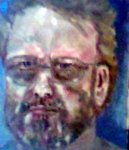In his thoughtful and interesting blog "The Technium" Kevin Kelly addressed the question why people migrate to cities [see http://www.kk.org/thetechnium/index.php].
Kelly ponders, cities
"…seem like machines eating the wilderness, and many wonder if they are eating us as well. Is the recent large-scale relocation to cities a choice or a necessity? Are people pulled by the lure of opportunities, or are they pushed against their will by desperation? Why would anyone willingly choose to leave the balm of a village and squat in a smelly, leaky hut in a city slum unless they were forced to?"
One of the repercussions of the search for urban opportunities and rural quality of life is the formation of rural-like suburbs and the outward spread of cities. We wrote in the past about the leap-frogging spatial dynamics that results [Benguigui, L., Czamanski D. and Marinov, M., “City Growth as a Leap-Frogging Process: an Application to the Tel Aviv Metropolis” in Urban Studies, 38(10), 2001, pp. 1819 – 1839].
I am concerned that stylized facts and observation of cities at an inappropriate resolution leads to wrong conclusions concerning the impact of cities on nature. In fact we do not know enough about this interaction. In a recent paper we reviewed the little that is known [Czamanski, D., Benenson, I., Malkinson, d., Marinov, M., Roth, R.,


No comments:
Post a Comment